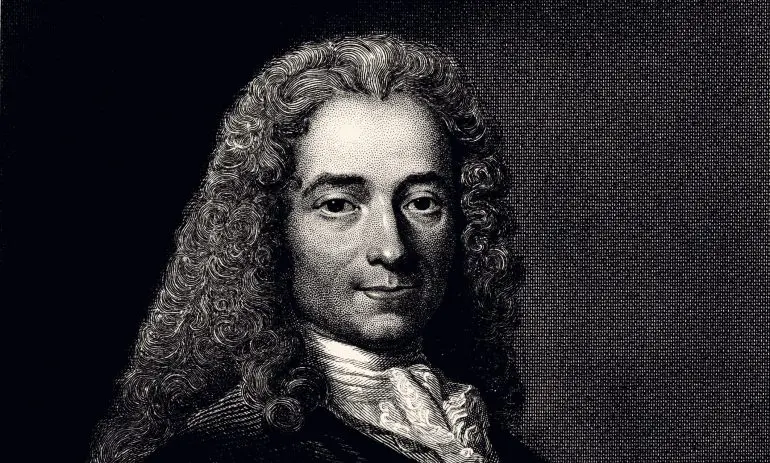Few historical figures are surrounded by as much mystery, intrigue, and controversy as the Count of Saint Germain. They say he helped place Catherine II the Great on the Russian throne; that he was arrested in London for being a Jacobite spy; and that Louis XV entrusted him as a diplomat. He declared himself immortal and adopted numerous aliases, from Count Bellamare to Prince Ragoczy. So, who was Count St Germain?
Well, he’s believed to have been an accomplished chemist, violinist, and linguist. Known for his charm and manners, he was enmeshed in the highest echelons of 18th century European society, rubbing shoulders with everyone from Casanova to Voltaire. But beyond that? We’re here to find out, separating the myth from the man known as Comte St Germain.
Count St Germain: Man of Mystery

Marburg Castle, residence of the Landgraviate of Hesse (Credit: robt99 via Getty Images)
There are many answers to the question “who was Count St Germain,” none of them definitive. Even during his lifetime, there was much speculation about his birth and lineage. For instance, his year of birth is often cited as 1712, but also as 1691.
Such ambiguity extended to all aspects of Count St Germain’s identity, a state of affairs he seemingly perpetuated. Indeed, he was known for his reluctance to discuss his origins, often responding with enigmatic answers or diverting the conversation entirely. What’s more, he seemingly adopted numerous aliases, including being known as Comte St Germain in London and Paris, Count Bellamare in Venice, and Count Soltykoff in Genoa. This was not uncommon at the time for people of rank or high position, but certainly helped maintain his mystique.
One account that’s considered more reliable is that of Prince Charles of Hesse. In his memoires, he recounted that, towards the end of his life, Count Saint Germain told him he was the son of Prince Francis II Ragoczy of Transylvania.
First Encounters: Courtier and Diplomat

Did the Count of Saint Germain put Catherine the Great on the throne? (Credit: Ignatiev via Getty Images)
It was in the 1740’s that Count St Germain gained prominence in European high society. He travelled extensively, making appearances in Paris, London, Vienna, and Saint Petersburg, among other cities. Wherever he went, he managed to ingratiate himself with powerful figures, including kings, queens, and ministers. Indeed, much of what is known of the Count of Saint Germain comes from the accounts of such figures. For example, it was Horace Walpole, the 4th Earl of Orford, whose correspondence revealed that the Count was arrested in London on suspicion of being a Jacobite spy.
One of the most well-documented periods of the life of the Count of Saint Germain was during his time in the court of King Louis XV of France. Beginning in around 1749, he reportedly became a close confidant of the king, advising him on various matters of diplomacy and statecraft. Louis XV is said to have entrusted him with delicate diplomatic missions, relying on his knowledge of European politics and his ability to navigate the complex web of alliances that defined the era. Some historians have even suggested that Saint Germain played a role in secret negotiations between France and other European powers in the Seven Years’ War. These activities are believed to have led to him being accused of espionage once more, this time for the Russians, though he was never formally charged.
Two years later, while in St Petersburg, the Count of Saint Germain is said to have assisted in ousting Tsar Peter III from the Russian throne, paving the way for Catherine the Great. He was even credited by some with founding the Freemasons.
The Talented Count Saint Germain

The Count was said to be a skilled violinist (Credit: EJGrubbs via Getty Images)
Regardless of the mysteries surrounding his life, St Germain’s supposed vast knowledge and impressive skills helped him forge connections with Europe’s elite. Said to have been fluent in multiple European languages, as well as Latin, Greek, Arabic, and Chinese, he moved effortlessly through aristocratic circles. He was also a gifted musician and composer, particularly skilled on the violin, frequently performing for royalty.
St Germain’s fascination with chemistry, however, was one of his most prominent pursuits. He was particularly drawn to alchemy, a controversial and speculative field that further deepened his air of mystery.
Mysticism and the Count of Saint Germain

Voltaire (pictured) called the Count 'Wonder Man' (Credit: pictore via Getty Images)
The Count of Saint Germain was involved in various esoteric fields, including alchemy and mysticism. He was rumoured to have mastered the transmutation of metals, creating gold gems of remarkable quality. He was also said to have perfected elixirs of youth and immortality and some said he himself was immortal. Indeed he hinted at living for centuries, witnessing events long before his birth, claims certainly helped thanks to his supposed persistently youthful appearance. Voltaire even nicknamed him “wonder man,” quipping that he was “a man who never dies, and who knows everything.”
Count Saint Germain spent the final years of his life pursuing his alchemical interests with the support of Prince Charles of Hesse-Kassel. In 1779, Charles gave him an abandoned factory at Eckernförde, supplying him with materials for his projects. The Count remained there until his death on 27 February 1784.
So who was Count St Germain, Really?

The true author's identiry remains a mystery (Credit: Olena Bartienieva via Getty Images)
Thus, despite all the legends, myths, and theories, the true identity of the Count of Saint Germain remains elusive. Historians have pieced together parts of his life through records, but much of it remains speculation. What we do know is that Saint Germain was a highly intelligent and skilled individual who left a lasting impression on the people of his time. His penchant for secrecy, his wide-ranging talents, and the aura of mystery that surrounded him have ensured that his legacy endures to this day.












